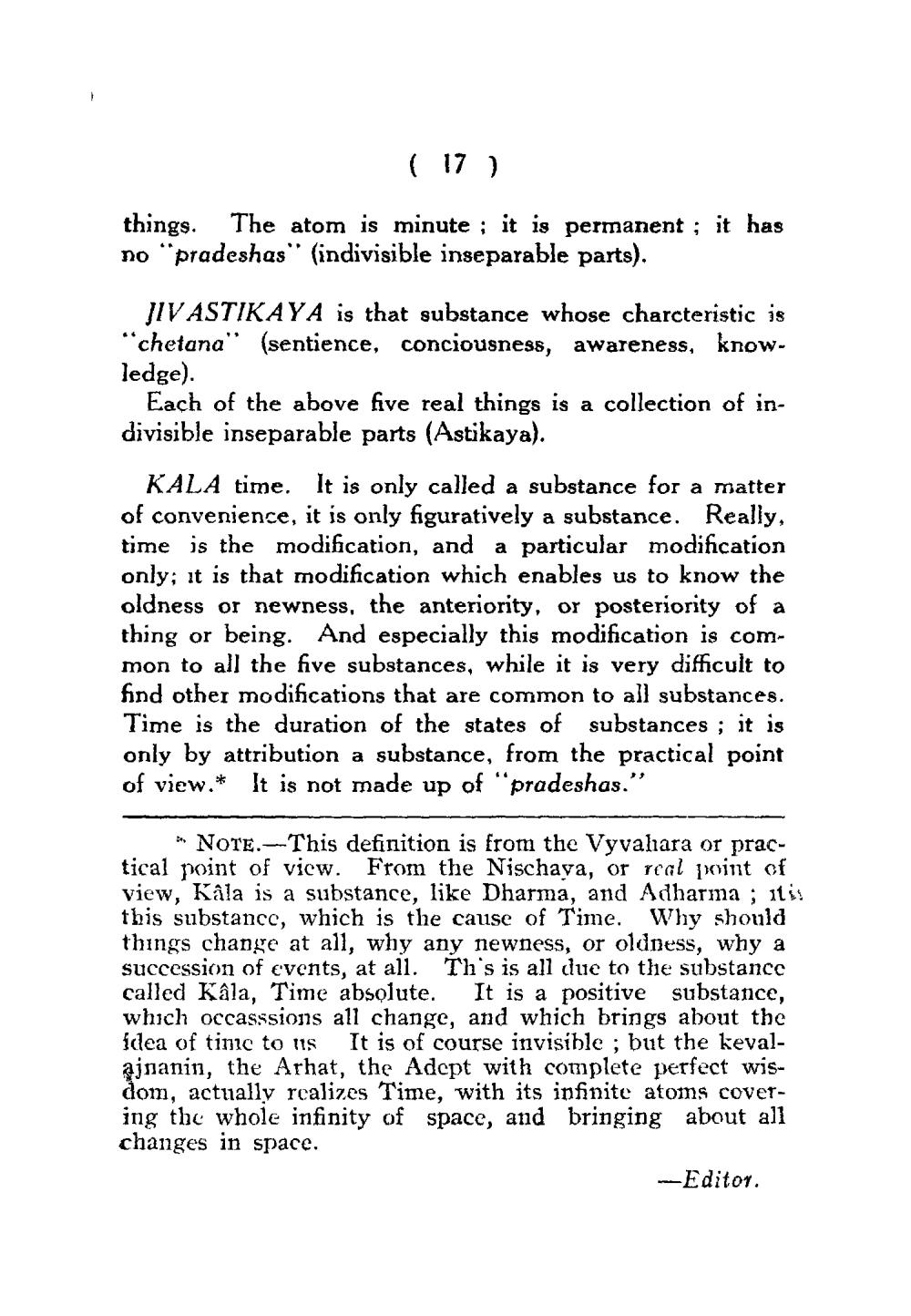________________
( 17 )
things. The atom is minute; it is permanent; it has no "pradeshas" (indivisible inseparable parts).
JIVASTIKAYA is that substance whose charcteristic is "chetana" (sentience, conciousness, awareness, knowledge).
Each of the above five real things is a collection of indivisible inseparable parts (Astikaya).
KALA time. It is only called a substance for a matter of convenience, it is only figuratively a substance. Really, time is the modification, and a particular modification only; it is that modification which enables us to know the oldness or newness, the anteriority, or posteriority of a thing or being. And especially this modification is common to all the five substances, while it is very difficult to find other modifications that are common to all substances. Time is the duration of the states of substances; it is only by attribution a substance, from the practical point of view.* It is not made up of "pradeshas."
NOTE. This definition is from the Vyvahara or practical point of view. From the Nischaya, or real point of view, Kâla is a substance, like Dharma, and Adharma; iti this substance, which is the cause of Time. Why should things change at all, why any newness, or oldness, why a succession of events, at all. Th's is all due to the substance called Kâla, Time absolute. It is a positive substance, which occasssions all change, and which brings about the idea of time to us It is of course invisible; but the kevalajnanin, the Arhat, the Adept with complete perfect wisdom, actually realizes Time, with its infinite atoms covering the whole infinity of space, and bringing about all changes in space.
갑자기
-Editor.




